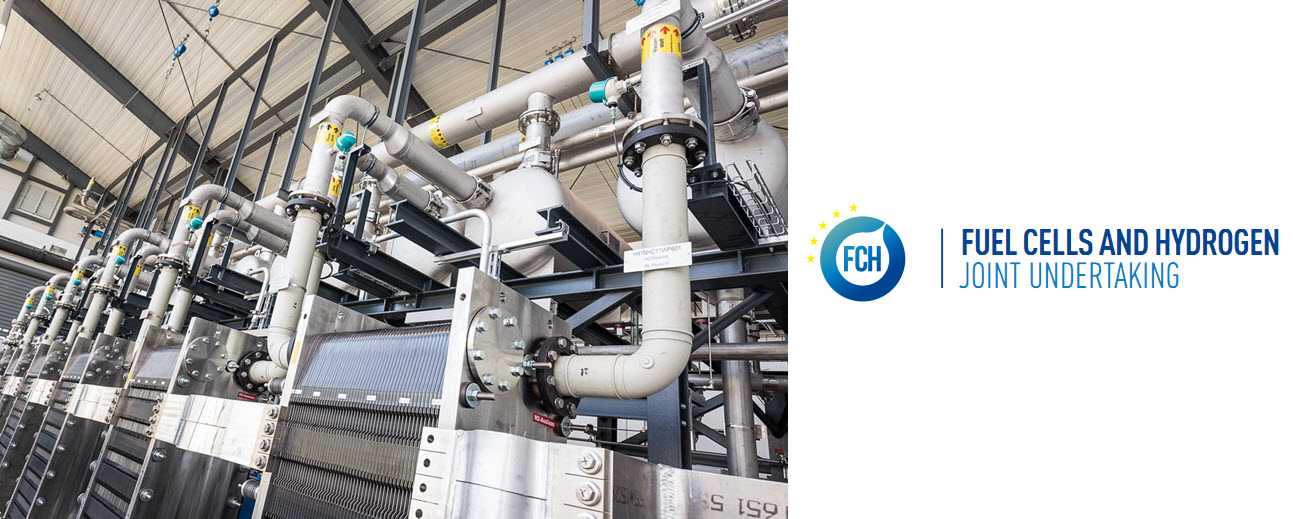
European policy makers are increasingly acknowledging the important role that hydrogen will play in existing gas networks, to meet targets for decarbonisation with minimum consumer disruption.
The existing gas infrastructure is a vital asset for energy delivery and security of supply, capable of long-term and high capacity storage of energy. Blending hydrogen with natural gas will take advantage of this asset. To ensure the safety and determine the performance of a system with an increasing hydrogen concentration, an effort in pre-normative research is required.
In this context, the new THyGA project (Testing Hydrogen Admixtures for Gas Appliances) sets out to develop and communicate a detailed understanding of the impact of blends of natural gas and hydrogen on end use applications, specifically in the domestic and commercial sector.
Following successful proposal evaluation by the European Commission and Fuel Cells and Hydrogen Joint Undertaking (FCHJU), the THyGA project has been selected for funding as part of the 2019 FCHJU work programme.
The main goal of the project is to enable the wide adoption of H2NG (hydrogen in natural gas) blends by closing knowledge gaps regarding technical impacts on residential and commercial gas appliances. The project consortium will identify and recommend appropriate codes and standards that should be adapted to answer the needs and develop a strategy for addressing the challenges for new and existing appliances.
It will do this by:
- Screening and segmenting the portfolio of appliance technologies in the domestic and commercial sectors and assessing the impact of hydrogen admixtures.
- Testing up to 100 residential gas appliances to provide a generic protocol that can be adapted for virtually any appliance.
- Developing a validated certification protocol for different levels of H2 in natural gas.
- Making recommendations for manufacturers and decision makers along the gas value chain for appliance design, manufacture and certification.
The project is being coordinated by Engie. Eight other partners from six European countries (DGC, Electrolux, BDR, Gas.be, CEA, GWI, DVGW-EBI and GERG) will work together on this project over 36 months. The consortium includes laboratories, gas value chain companies, manufacturers representing different applications (cooking, heating), and an international association. It will be supplemented by an advisory panel of manufacturers and gas companies which will be closely integrated with the main project team.
ENGIE is a global energy and services group, with global networks and low-carbon energy part of their core activities. Engie is leading the THyGA project, with the involvement of the Group’s corporate centre for R&D and high-level expertise dedicated to new energy sources (hydrogen, biogas and LNG), ENGIE Lab CRIGEN. www.engie.com
DGC (Dansk Gasteknisk Center/ Danish Gas technology Centre) is a specialized consulting and development company within energy and environment; its main focus area is gas utilization. DGC will provide laboratory testing for the experimental work of the project. http://www.dgc.eu/
GWI (Gas-und Wärme-Institut Essen e.V.) is a well-recognised German research institute focusing on appliance technology, fuel engineering, industrial engineering and combustion technology. GWI will lead the study on the status quo of gas utilisation technologies in the scope of THyGA. http://www.gwi-essen.de/
GAS.BE is an association of the Belgian gas grid operators promoting and facilitating the use of natural and renewable gas, headquartered in Brussels.Gas.be leads the work package evaluating the impact of H2NG blends on the current certification practices and standardisation. https://www.gas.be
The CEA (Commissariat à l’Energie Atomique et aux Energies Renouvelables) is a French public government-funded research organisation in the areas of energy, defense and security, information technologies and health technologies. Within the CEA, Liten (Innovation Laboratory for New Energies and Nanomaterials Technologies) is the first European institute entirely dedicated to the energy transition. http://www.cea.fr/english
The DVGW, German Technical and Scientific Association for Gas and Water, is a recognized standardization body for the gas and water industry and a centre for technical and scientific know-how. https://www.dvgw.de/english-pages/ , herein represented by DVGW-Forschungsstelle Karlsruhe, https://www.dvgw-ebi.de/forschungsstelle-en.htm
BDR Thermea Group is a European manufacturer of domestic and industrial heating appliances. https://www.bdrthermeagroup.com/en/
Electrolux is a Swedish multinational home appliance and appliances for professional use manufacturer, focusing on increasing their use of renewable energy and with previous experience in hydrogen home appliances. https://www.electroluxgroup.com/en/
GERG, The European Gas Research Group, is a non-profit international research association, with a membership of European gas companies across the value chain. Taking advantage of its network of H2NG stakeholders, GERG will participate in the knowledge management and dissemination of THyGA. https://gerg.eu
About the FCH JU. The Fuel Cells and Hydrogen Joint Undertaking is a unique public-private partnership supporting research, technological development and demonstration activities in fuel cell and hydrogen energy technologies in Europe. Its aim is to accelerate the market introduction of these technologies, realising their potential as an instrument in achieving a carbon-lean energy system. The three members of the FCH JU are the European commission; the fuel cell and hydrogen industries, represented by Hydrogen Europe; and the research community, represented by research grouping Hydrogen Europe Research.
The THyGA project receives funding from the Fuel Cells and Hydrogen Joint Undertaking under grant agreement No. 874983. This Joint Undertaking receives support from the European Union’s Horizon 2020 research and innovation programme, Hydrogen Europe and Hydrogen Europe research. The FCH 2 JU selected THyGA to receive funding in 2019, and2.5million € have been allocated to the project.
Read the most up to date Fuel Cell and Hydrogen Industry news at FuelCellsWorks




